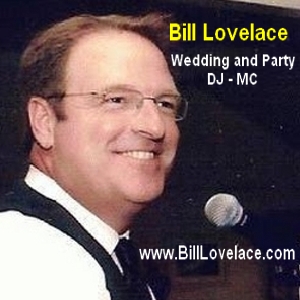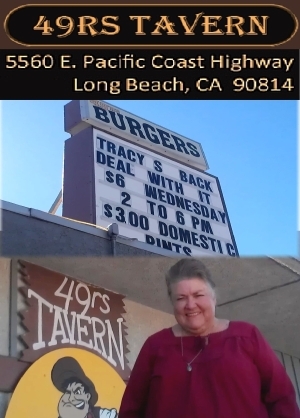Sales taxes are considered "regressive" taxes in the sense that they impact low income residents the hardest. (Spending several dollars more a month on consumer purchases goods might not matter much to a Naples resident, but could matter very much to some working class and poor families.)
Advertisement | Advertisement |
Mayor Garcia proposes that the proposed tax be "temporary" for six years, decreasing to a half cent after six years and ending completely after ten. However future Councils and Mayors -- like lawmakers at other government levels -- could seek to extend the so-called "temporary" tax (with no guarantee of lower city government costs or spending reforms in the interim.) Garcia also proposes putting the first 1% of any new revenue aside in a "rainy day" fund.
Mayor Garcia proposes that the Council put the proposed sales tax increase on the June, 2016 ballot, coinciding with Council elections in districts 2, 6 and 8, as a general fund ("blank check") tax. If the Council were to put the measure on the November ballot, it would need 2/3 voter approval unless the Council voted unanimously to declare a "fiscal emergency."
Including specific items to be funded would require 2/3 voter approval in June or November. Although Mayor Garcia's letter lists items [that polled well, see below] that the tax could fund, the general fund measure he proposes provides no legal guarantee to taxpayers that the tax, or any specific part of it, would be used to fund those items or any other specific items. If voters approve such a measure, Council majority, now or in the future, could spend the tax as it pleases...including pay raises in new contracts for service level employees and/or managers, both of whom are represented by collective bargaining units in Long Beach.
In summer 2008, Mayor Foster proposed, and the Council -- with then-Councilwoman Gerrie Schipske declining to declare a "fiscal emergency" -- put a proposed parcel property tax measure on the November 2008 ballot. Schipske's action effectively required City Hall to get 2/3 voter approval to enact the parcel tax; Foster raised over $700,000 to support a campaign for its passsage; the measure failed passage, receiving roughly 52% of the vote when a 2/3 majority was required.
Advertisement | Advertisement |
The Garcia proposed tax hike comes just weeks after a Council majority voted to adopt a LB's minimum wage higher than state levels applied in neighboring cities. A few weeks earlier, the Council voted to enter into a transaction to rebuild LB's Civic Center without seeking voter approval. The Dec. 15 Council action will require sending annual increasing LB taxpayer payments to a private developer/operator for 40+ years. The City failed to seek bids or invite presentations from experts independent of city management on a City Hall seismic retrofit with fixed annual payments using bond financing with voter approval.
Advertisement | Advertisement |
Mayor Foster's administration (2006-2014) included raises for the three major city employee unions that had endorsed him (2008 for LB Firefighters and IAM, and a 2007 reopener for Police) but without pension reforms, which became unsustainable with the 2008-09 economic slowdown. Foster was elected in 2006 with a pledge to voters to put 100 more officers on the street in his first four years in office. When Foster left office in 2014, LB taxpayers had roughly 200 fewer police officers than they had at the height of his administration. Foster blamed this (and more) on the "Great Recession," but other cities didn't cut roughly 20% of their deployable officers for taxpayers.
Foster recommended and Council majorities approved what he called "proportional reductions" that erased roughly 20% of LB's citywide deployable officers and left three fire stations without fire engines (measures not taken by most other cities despite the "Great Recession.")
And in 2013, a Council majority under Foster approved roughly 15% pay raises for city managers (with pension reforms) that now drain roughly $1.7 million annually from the General Fund.
Mayor O'Neill's administration (1994-2006), during which the city gradually added police officers that Mayor Foster's budgets subsequently eliminated, remains stained by a now-discredited 2002 "pension spike" approved by outgoing and incoming Council votes. In seeking election in 2006, Mayor Foster blasted the pension increase but once in office, recommended raises for the three public employee unions that had endorsed him in contractual actions without pension reforms. After the economic slowdown, Foster successfully pressed all city employee unions to accept pension changes that applied a portion of the taxpayer-paid raises to pay toward the employees' pensions in 2013 and forward.
Mayor Garcia's office also released a memo from a survey firm [undisclosed who hired the firm or on what Council-voted authority] using a format typically used as advocacy tools by candidate campaigns seeking to show voter support for themselves. The "to interested parties" memo indicates 67% of those surveyed are pleased with the overall direction of the city and that more than six in ten LB voters would vote in favor of a ballot measure to fund police and fire services, repair roads, improve infrastructure and fund other city services...although the Garcia proposed tax increase doesn't legally guarantee these items at any specific levels.
The "to interested parties" memo also doesn't disclose the "question tree" (actual questions asked, responses received) or other methodology commonly disclosed with non-advocacy surveys.
blog comments powered by Disqus
Recommend LBREPORT.com to your Facebook friends:
Follow LBReport.com with:
RSS |
Contact us: mail@LBReport.com







Hardwood Floor Specialists
Call (562) 422-2800 or (714) 836-7050
